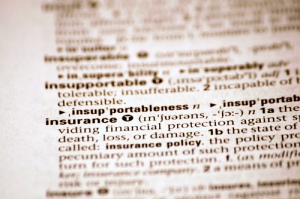Update 3/9/2017: George’s blog is no longer active on the web. Therefore, I have edited this post to include my full article below.
Recently, I had the honor and privilege of guest posting on George Simpson’s blog, entitled North Carolina Insurance Law. George’s blog is a gold mine of information for those concerned with insurance issues, and it is a staple of my blogroll.
My post is entitled: “Court of Appeals Finds Applicable Coverage Under CGL Policies Despite Exclusionary Language”
The Court of Appeals has been busy this summer deciding two somewhat similar CGL policy cases, both of which the insurance professional should keep an eye on.
The Court held that Maryland Casualty’s definition of “your work”, to include all damage, even that of property other than the work product itself, was too broad to be upheld.
2. Coverage of Consequential Damages and Lost Profit
Even more recently, the Court addressed CGL policies in Alliance Mutual Insurance Co. v. Glen Dove. In that case, a grain elevator ignited moments after some repair welding was conducted. The mill owner sued for, among other things, cost to repair the elevator, cost to repair the grain bucket, and for lost business and revenue.
Alliance argued that since coverage for damage to the elevator itself was excluded under the “your work” exception, the portion of lost revenue and other consequential damages attributable to the loss of use of the elevator should also be excluded. The Court, however, held that the “your work” exclusion does not cover lost revenue and other consequential damages. The Court noted:
to adopt the plaintiff’s very broad reading of the exclusion clause would result in the exclusion clause swallowing up the whole of the commercial liability policy, and render any coverage contained therein illusory.
The Court therefore held that there was coverage for the loss of use and consequential damages flowing from damage to the specific property the insured was working on.
Insurance coverage issues are important to all design professionals, because if the general contractor doesn’t have applicable coverage, the A/E may be left holding the bag.
What are your thoughts as to what CGL insurance policies should and should not cover? Obviously, CGL policies are not meant to be performance bonds, but where does the line between coverage and non-coverage get drawn? Share your thoughts in the comments.
——————————————————
Photo: “insurance” by Alan Cleaver via Creative Commons license.
